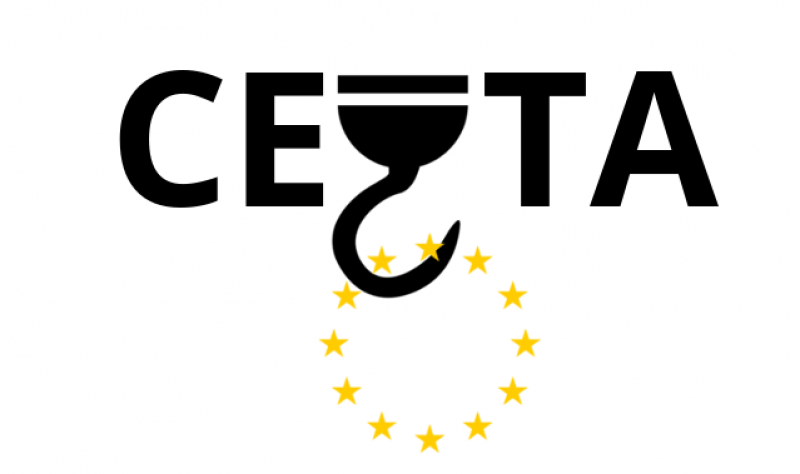
CETA approval in EU Parliament sinks corporate hooks into European democracy
Despite unprecedented public opposition, the European Parliament today approved the controversial EU-Canada Comprehensive Economic and Trade Agreement (CETA). The vote flies in the face of millions of people, as well as trade unions, environmentalists and a broad civil society coalition who called for a rejection of the deal in both Europe and Canada.
Corporate Europe Observatory’s trade policy campaigner Pia Eberhardt said:
“Let’s not beat about the bush. CETA is a huge gift to big corporations, which gives them unprecedented powers. Corporate lobbyists will be popping champagne corks over today’s vote.
“But it’s a sad day for democracy and for the millions of Europeans and Canadians who have been demanding trade rules that benefit people and the environment.”
CETA sets dangerous precedents as it contains rules which corporations have pushed for years, but which have never before been part of an EU trade deal. These new, far-reaching privileges empower foreign investors to sue governments, grant early and exclusive access to the legislative process for business lobbyists who want to lower protection in areas such as environmental policies and food standards, and make it possible to lock in the privatisation of public services.
Corporate Europe Observatory’s trade policy campaigner Lora Verheecke, who followed the European Parliament vote in Strasbourg, said:
“The mobilisation against CETA has been one of the strongest European democracy movements ever. But most EU parliamentarians today turned their back on this force and chose to approve the deal.
“CETA will entrench the corporate-driven model of globalisation that is already choking our democracies by increasing social inequality, political exclusion, unemployment and people’s disempowerment.
“A glimmer of hope now comes from the many national and regional parliaments across all of the EU that still have to ratify CETA. Each one of them can bring it to a halt.”
Contact:
Pia Eberhardt, pia@corporateeurope.org, ++49 221 789 678 10, ++49 152 56 30 91 02
Lora Verheecke (in Strasbourg), lora@corporateeurope.org, +33 626 14 31 01 (FR)), +32 4 86 31 00 34 (BE)
Notes to editors:
Following the signing of CETA by EU and Canadian governments in October 2016 and controversial votes in several European Parliament committees, today’s vote in the Parliament’s Strasbourg plenary was the final step in the EU-level ratification of CETA. Now, large parts of the deal will enter into force as of spring 2017. But the full agreement will only be implemented after ratification by parliaments in all 28 EU member states, including those where CETA is highly controversial and will face referenda.
For CEO analyses of CETA’s foreign investor rights, its regulatory cooperation and its services chapters, see: ‘CETA – Trading Away Democracy’ and ‘Regulatory cooperation’: big business’ wishes come true in TTIP’ and CETA’ and ‘Public Services under attack’.
The broad coalition of voices opposing CETA include:
a record 3.5 million people from all over Europe who have signed a petition against CETA and its twin agreement, the EU-US Transatlantic Trade and Investment Partnership (TTIP)
over 2,100 local and regional governments who have declared themselves TTIP- and CETA-free zones
101 law professors from 24 European countries, who in a public statement have opposed the far-reaching investor rights in CETA and TTIP, as well as the European Association of Judges, who likewise in a statement have expressed strong reservations
trade union opposition unprecedented to an EU trade deal, including by the European Trade Union Confederation (ETUC) and many of its member federations. The Employment and Social Affairs committee of the European Parliament also recommended to reject CETA because of the negative impact it would have on workers.
academic and journalistic comments by leading economists highlighting how CETA’s provisions for “cutting ‘trade costs and more’ will cause unemployment, inequality and welfare loss” (Kohler and Storm 2016), making the trade deal “a treaty which belongs to another age […] and which should be rejected” (Piketty 2016).
